HOME to David and Tamso Cox and their daughters India and Isla, Baroda Stud was founded in 1948, when the Maharajah of Baroda’s dual Irish classic winner Sayajirao was retired to the stud near Newbridge, in Co Kildare.
Baroda and the adjoining Rosetown Studs are the two farms in the business, covering 400 acres of high-quality limestone land; a few miles drive off the motorway and the visitor is enveloped in a naturally beautiful landscape with state of the art facilities at the heart of the property.
Breeding, buying and selling foals and yearlings, having large consignments of foals and mares to sell, is all part of the business, along with boarding mares and spelling horses.
Their Irish client base is supplemented by customers from Australia, Britain, France, USA, China and the UAE.
Consultancy
As well as partnering in client liaison and the marketing of the business, Tamso owns and runs a PR and marketing consultancy [named Tamso], the highlights in her calendar being the Dowth Hall point and country fair (recently completing a highly successful fifth year) and the annual Leopardstown Racecourse Ladies Evening, in aid of Breast Cancer Ireland.
In the sun-drenched kitchen looking out on the garden, the couple outlined the different aspects of their bloodstock business.
This year Baroda sold six lots at Tattersalls Book 1 for 995,000gns and 12 lots at Book 2 for 801,000gns.
Among their 19 yearlings at the Goffs Orby Sale, sold for €2.8 million, was a €1 million Dark Angel, filly bought by Godolphin.
Was this one of their best days?
David: “She was a homebred for China Horse Club, she was a very good foal, so it’s nice when a physical matches the pedigree, you know. This was Harry Angel’s full-sister and it’s exciting, but she was a good foal and followed through to be a good yearling, getting a nice price for the owners.
“Henry Beeby (Goffs) looked at her in the paddock and Tatts looked at her, Simon Kerins, and they both loved her and wanted her. Henry thought she would be in the top five at the Orby and Simon wanted her for Newmarket, thought she’d be a lovely filly there.
“It was a funny thing because Henry met Mr Teo in Ascot. (Teo Ah King, CEO of the China Horse Club). Mr Teo wasn’t sure whether he’d sell her or not.
Tamso explained: “Up until then he wasn’t sure if he was going to sell her, but when he met Henry in Ascot, I think it was only one line, Henry wrote to Mr Teo and Mr Teo said, what was the one line? ‘Thank you for your letter. We will go with your plan’, or something like that.
“And that was it, the decision was made there and then that she would go to Goffs.”
The sales teams cover a lot of ground outside the ring?
David continued: “All the guys in Tatts or Goffs, with all the extra sales now, it’s so hard on them, they have to look at so many horses every year, and they have to be at so many sales every year. They have to be at so many events between sales to meet the clients and try and get the horses. It’s just non-stop for them. Tatts with extra National Hunt Sales, Goffs, and now with Goffs UK for their sales.”
What is your business model? What percentage of your horses are owned by others?
David: “I’d say, with the mares, there’s probably 60% others.”
Tamso: “I'd say it's 60/40 and we’d have shares in some of the 60%, but in the yearling sales we sold, was it 90 or 100 yearlings, 94 yearlings, and you know the majority would have been for clients, the consigning business and selling for clients.
“And that area of the business has grown a lot, which has been great. Obviously it’s shown through the Goffs’ foal and mare sales because we are selling in the 20s of both foals and mares at Goffs.
And were these old clients or new people?
David: “A mixture of both.”
Tamso: “We don’t have very many clients. What I mean is, we still go by the boutique model. So we try to have a small number of clients with a number of horses each. We are very top end, we’ve grown to that. We’ve grown and built our business to have a better quality of horse on the farm. It’s great for the staff, it’s great for everybody when you are foaling the likes of Harry Angel’s full-sister and having her as well as horses of that calibre.”
You seem to do a lot of business in the US. Is that a relatively new practice?
“A good friend of mine was living out there and going out there to sales for numerous years and I’ve done a lot of business over a decade, buying and selling over there and meeting clients and him,” David continued.
Tamso: “David has been working on the American market quite strongly for that. To try to build up our client base over there. So when they look to Europe, and who to sell with, they would come to us.
“That’s been an important part of our market. People like Bobby Flay, SF bloodstock.”
What are the Americans like to do business with?
David: “Very straightforward and they pay up fast.
“Between Goffs and Tatts they are financing the breeding and sales industry here really because Goffs could have 10 or 12 million of debts at any one time and that’s from financing people to trade horses. Newmarket is probably the same, they probably have an outlay of something similar.
“If they weren’t doing that, these people wouldn’t be able to buy horses, they wouldn’t be able to because the banks won’t give them the money. So you know, without them it would be a struggle.
“In the States you pay within 14 days or you get a solicitor’s letter! And if you buy a horse they pay you within 14 days.
There’s no credit terms, you know the effort Goffs and Tatts make bringing people over and looking after flights, looking after accommodation, doing all that, which is very important, and ITM as well.
“Even the Open Sale this week (Goffs Open Yearling Sale) there was a lot of guys from Eastern Europe who bought a lot of horses and without them those horses mightn’t have got homes. But in America you pay your own flight, pay for your own food, accommodation and you pay for the horse within 14 days.”
Much tougher.
David: “It is. I suppose they are competing against each other too, if Goffs aren’t going to give you enough credit you’ll try to get more off Tattersalls. With Goffs it’s one thing if they are just doing flat but then all the point-to-point guys have credit terms in June. So the debt gets bigger again.
“And Goffs are relying on the guy buying a three-year-old to do a good job and get that horse to win. So he can sell it to pay back the debt. You know with horses things can go wrong, the horse can be slow or get injured.”
And do you both have a good eye?
Tamso: “It’s really David that does that. I have grown up in it and I love getting to see them but David and Mick Flanagan particularly would.”
David: “Because I’m caught so much with the consignment I rely on the likes of Mick Flanagan to look at the foals for me and he would give me short lists.”
Do you have extra staff for prep times for young stock?
David: “We keep the staff as much as we can all year round because it’s busy all year. People come here, they spend six months or a year, they learn what they need to learn, they want to go on somewhere else to learn more. They want to go to Australia, that’s all progress in their lives. You’d hope they would learn more and do their own thing.
“So I find the sales a great way of meeting new staff. Young people turn up and you can spot a good person and then they might suit your team and offer them a chance to come and do six months or a year.
“We have two very good head people here now, Brian Delahunt and Noel Rasmussen from Queensland. He’s been living in Ireland for a long time. They run the ship and they stay on the farm all year round.
“And we have a mainly separate sales team, which is led by Noel McDonnell from Mayo. And he’s a great addition. It means then the farm is constantly running because literally we prepped 45 yearlings on the farm for the yearling sales. And 45 yearlings gradually over the couple of weeks left and 33 stables were refilled with foals for the foal prep.
“So there wasn’t really any down-time between the two, so you need to have a team constantly running. There’s about 10 full-time staff, we have maintenance men and we have a cattle man, all that sort of thing.”
For those instances when a client wants a certain amount for an animal and they don’t get it, what is the brief?
Tamso: “David would advise clients because when you are really in the market, it’s part of the service. We see the market up close and personal and we have to advise clients on what price to take.”
A lot of investment has been put into the barns and paddocks, attractively planted up with hedging and young trees. A couple of new barns, new fencing, a wash bay, some new stables, constant re-investment.
We stand at the side of a leafy paddock where foals are being walked, only two weeks into their prep, walking out confidently as well as keeping an eye on the stranger.
David observed: “These walking stints as foals are the foundation for the animal. It’s easier to put bridles on as yearlings, depending on how they have been handled from birth; you can see the yearling turns up at the sales who hasn’t been handled enough.
“These foals have to be fit for the sales, you know these foals get looked at more than yearlings get looked at, at the sales.”
What is the process of weaning? How long does that take?
David: “We batch them up into groups of four similar ages, and then we take two mares away from that bunch and then leave the foals with the other mares for a few days and then take one away and then take the last one away. You leave the quietest mare to last and it seems to be very stress-free.
David, with the team, puts a lot of work into the nutrition, particularly for the yearlings and foals, with animal and nutrition science evolving so fast. Supplies are from Gain and Red Mills and some products from Britain as well,
Is there a male/female difference in handling foals and yearlings?
David: “The staff at the sales, especially the girls, kind of have that lovely touch towards horses sometimes. You can see them giving a filly a hug when she sells, something that you wouldn’t see that often.
“But I had a Brazilian guy - he was working for someone else at the sales but he works for me sometimes - he’s a really good guy. I said to him, when my guy was absent, would he just show that horse for me, and he did.
“And the horse tried to bite him and he was walking up to put the rug on and, rather than getting angry with him, when he was finished he took the bridle off and he gave him a pet down his neck. I was like, ‘Jesus, that’s different’, you know.”
All about gaining trust.
Tamso: “It’s lovely to see that. Brian (Delahunt) has that. Patience and time and we are all busy and trying to meet requirements and you just have to try, you need people who can be patient and give them time.
“I think David’s travelling has been great because everything has to evolve on the farm all the time. And with his travelling you are seeing new things and getting ideas or maybe better ways of doing it, what would work here and how you can adapt.
“You have to gain a competitive advantage and, at the end of the day, it is all based around the horse and having the horse really healthy, really well and showing the actual natural horse off too. Improving the best parts.”
Grass management must be a core part of your business?
Tamso: “David has been a farmer since he was in college, in Writtle University College in Essex, so always his interest was in farming and farm management.
“Running cattle and sheep is all part of the grass management programme at Baroda and Rosetown and Dermot Cox (David’s father) has always believed that sheep are lucky and also very good for the land.”
Taking a drive around the exquisite adjoining Rosetown farm, home to David’s parents Dermot and Ann, is very special, one 50-acre field sloping down to the Liffey, not like the river Dubliners know.
Are you good, which most farmers aren’t, at leaving the place and heading off for a family holiday?
David: “It’s kind of hard to leave, you can’t leave the phone down between everything you know – there’s someone ringing to find out about a mare or a foal or get you to sell a horse or a problem on the farm. Or Dad is looking for me for something, another business, so I’m on the phone the whole time.
“But we try to do a few days here and there. We go to Kerry a bit, Tamso would go down for two weeks and I’d go down for two or three days and come back. The team here is reliable and everything runs well, being away so much at the sales, so at least if I do go away for three or four days I know everything runs like clockwork.”
But the responsibility is yours and with animals nothing is easy.
David: “Exactly, the mares start foaling in January and that goes through to May and you are trying to get mares in foal again.
“Lads are always asking me to come to Australia for the sales and I’d love to go down there but it’s just bad timing, bad time of the year for me.
“Then you have yearling preps in August and September, and then you have the sales.”
The non-stop calendar continues this month at Goffs, where you can expect Baroda Stud to again be among the leading consignors.
Six of Baroda’s best heading for the sales
Goffs November Foal Sale
Lot 580 colt Highland Reel - Trimurti, by Harlan’s Holiday. From the first crop of the sire and from one of the best families in the book.
Lot 582 colt Showcasing - Tschierschen, by Acclamation. The dam is a half-sister to five blacktype performers including Group 1 runner-up Gallagher.
Goffs November Breeding Stock Sale
Lot 870 Fontley (2007) (Sadler’s Wells - Horatia, by Machiavellian) in foal to Roaring Lion. She is the only mare in the sale in-foal to the late Roaring Lion. She was a winner and listed placed, and her half-sister won a Group 3.
Tattersalls December Foal Sale
Lot 934 colt Caravaggio - Like A Star, by Galileo. From the sire’s first crop. The dam is a full-sister to Battle Of Marengo.
Tattersalls December Mare Sale
Lot 1819 Celtic Beauty (2017) (No Nay Never - Keystone Gulch, by Gulch). Trained by Ken Condon, this filly has an official rating of 103 and finished second to Daahyeh in the Group 3 Albany Stakes at Royal Ascot.
Lot 1820 Ionic (2015) (Intello - Platonic, by Zafonic) in foal to Lope De Vega. A half-sister to Group 3 winner Pacifique and also to Prudenzia, the stakes-winning dam of Chicquita and Magic Wand.
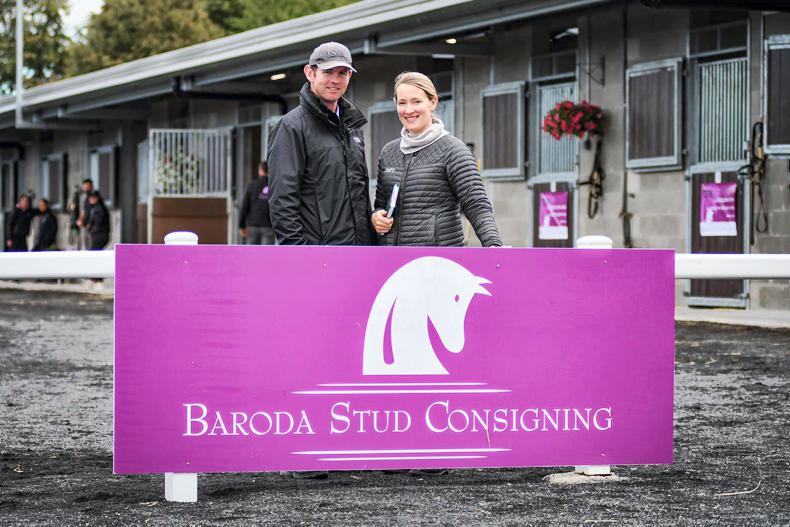

 This is a subscriber-only article
This is a subscriber-only article
 It looks like you're browsing in private mode
It looks like you're browsing in private mode




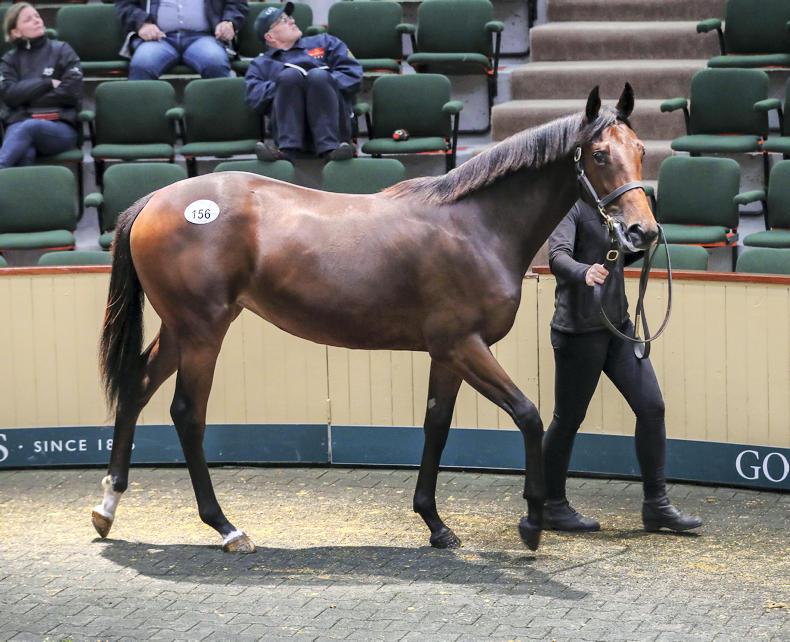
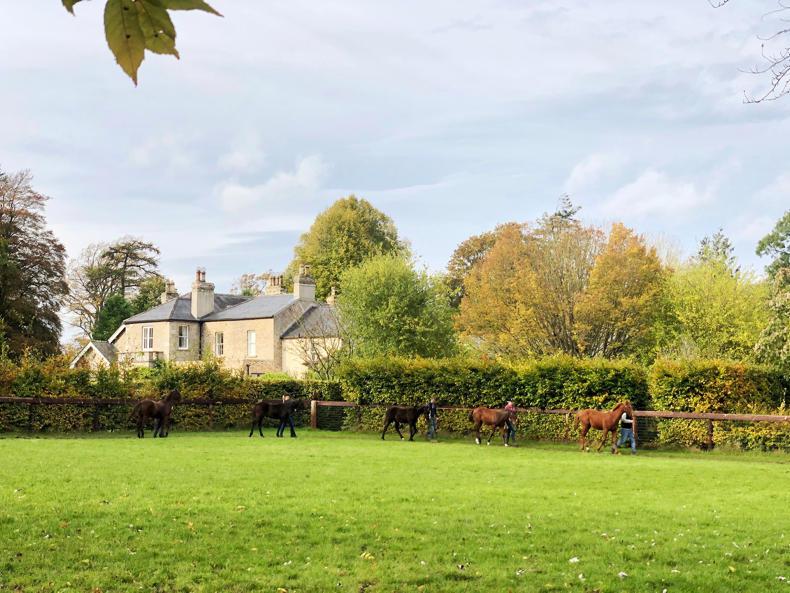
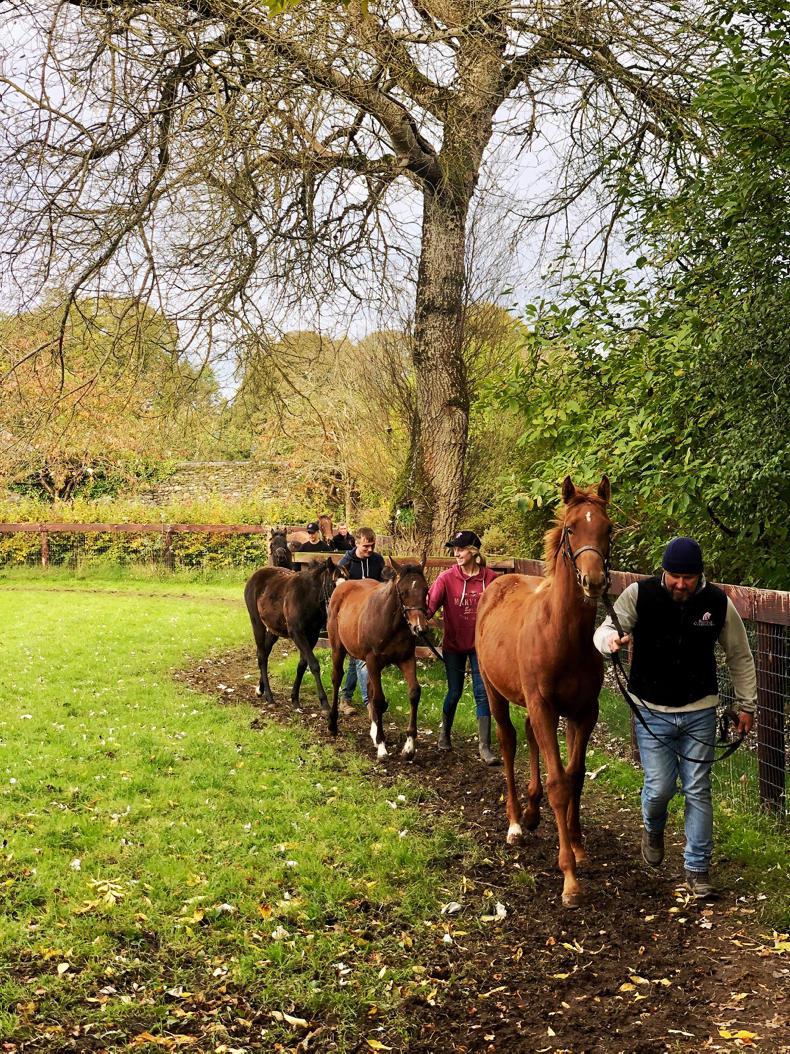
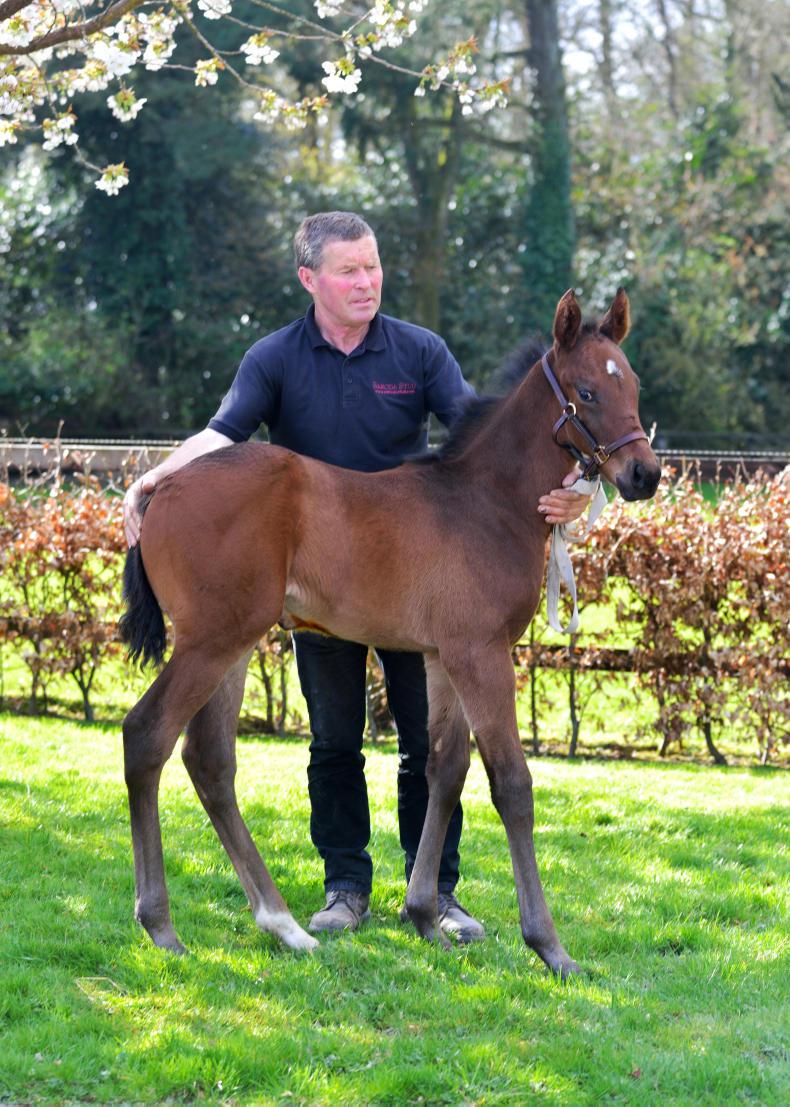


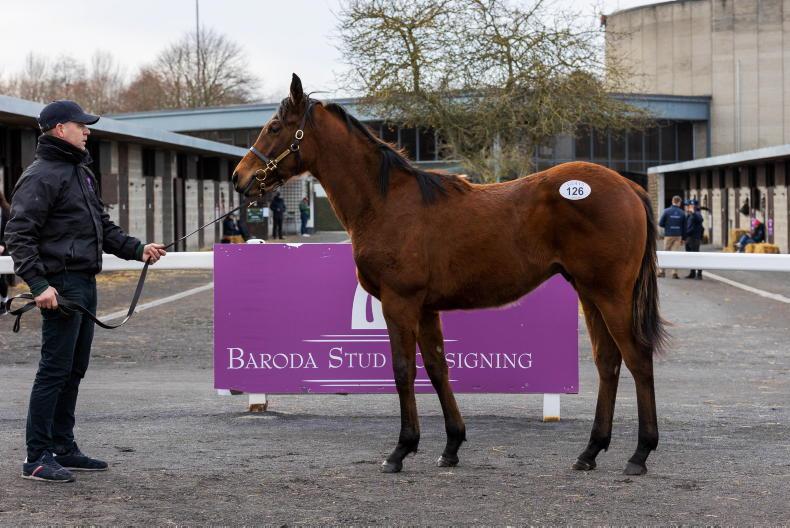
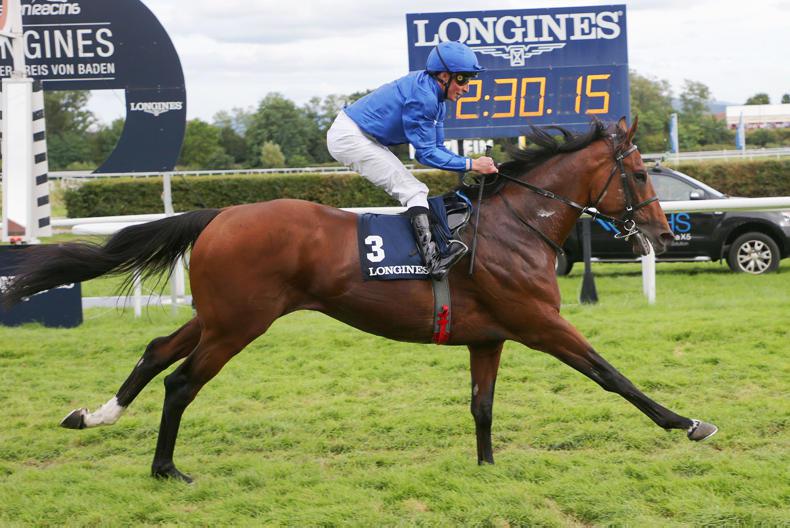

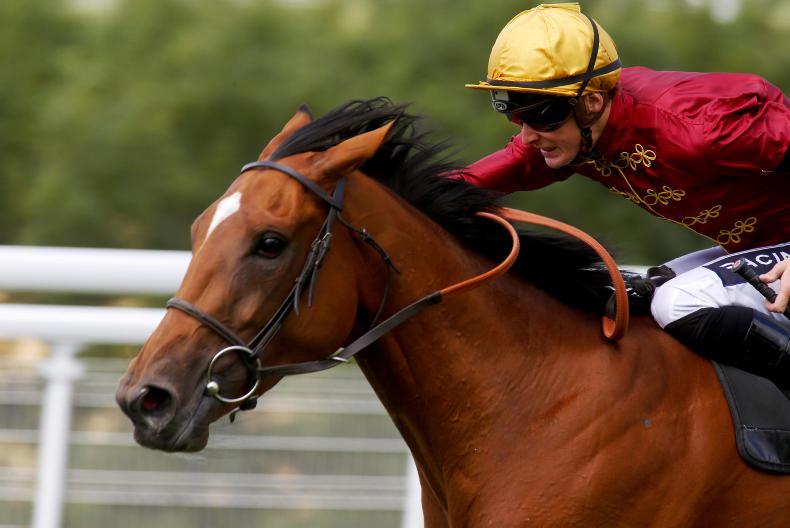
SHARING OPTIONS: